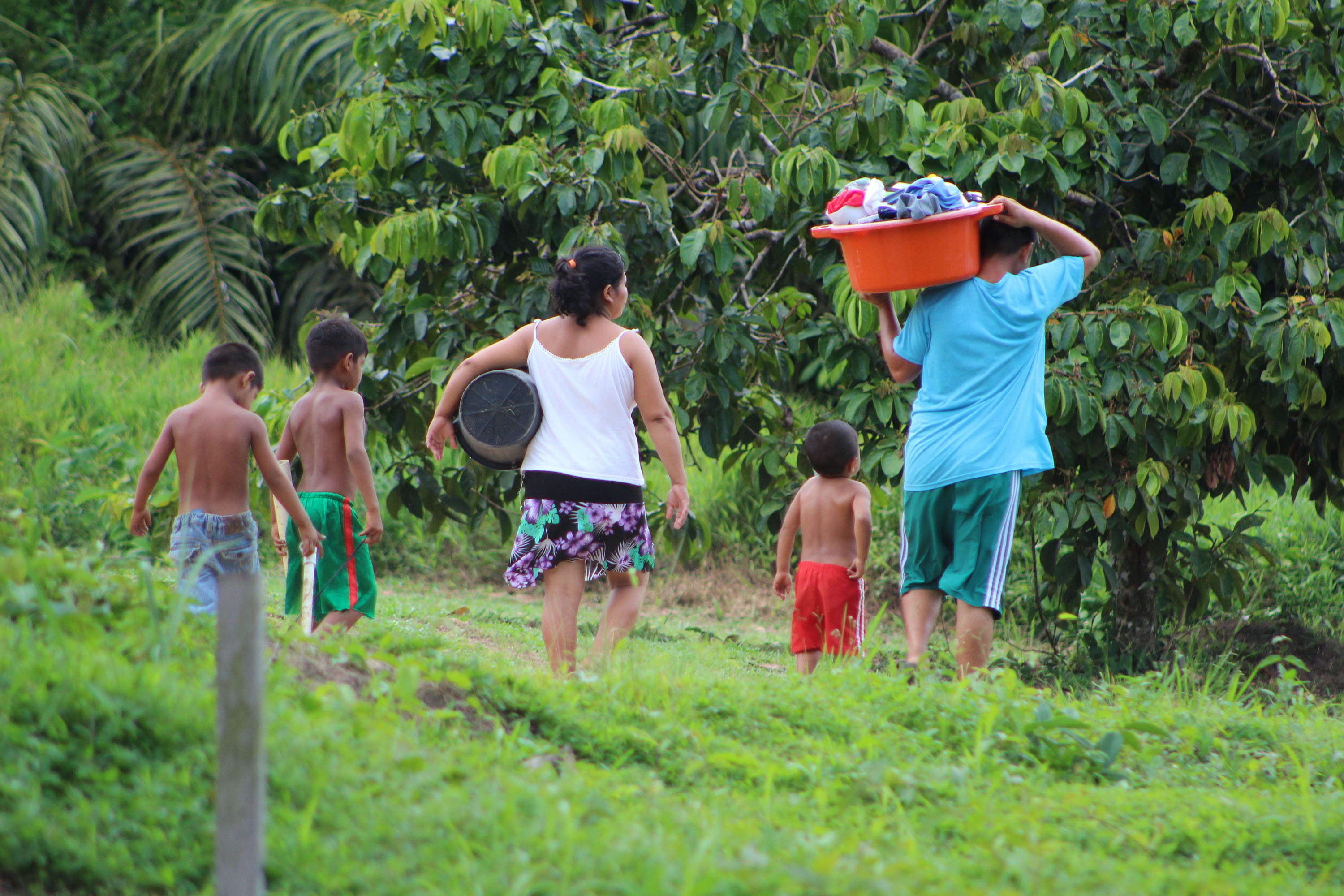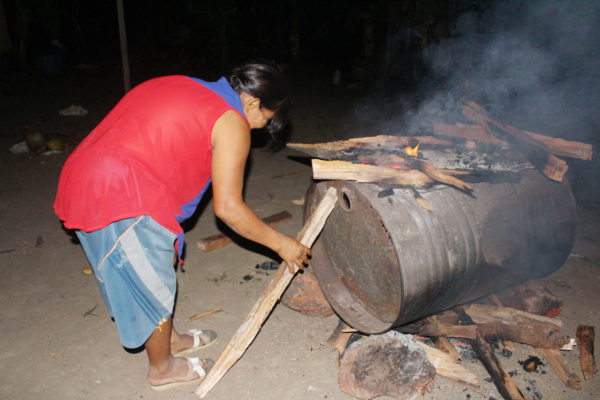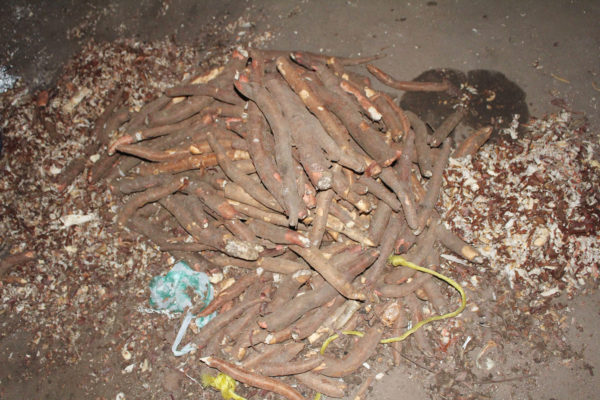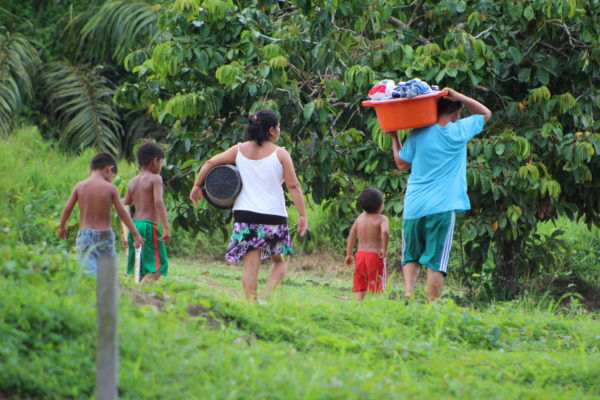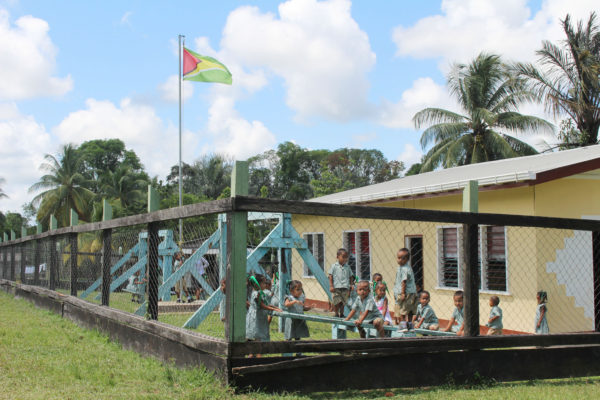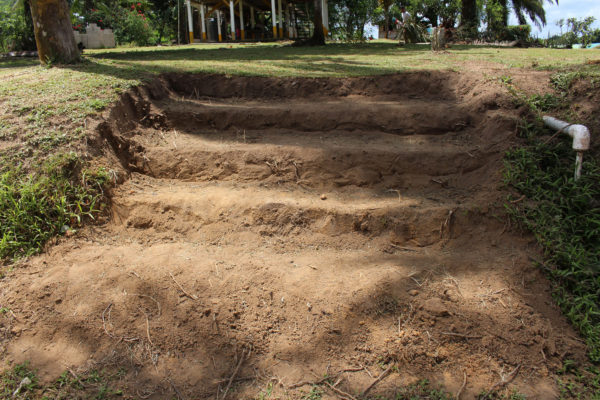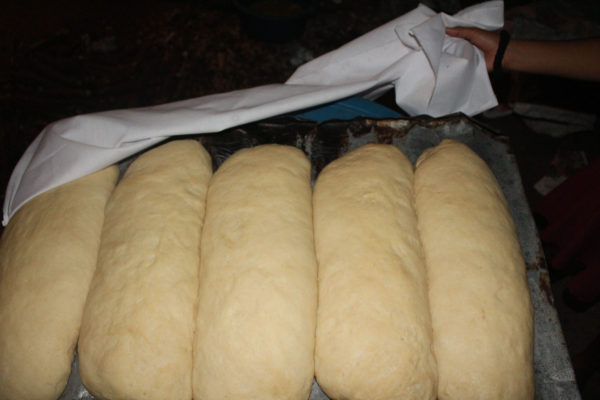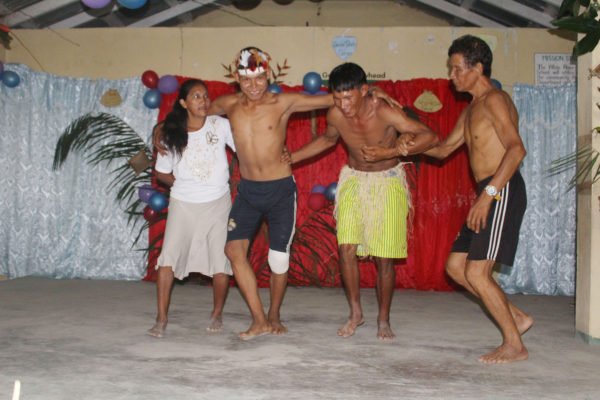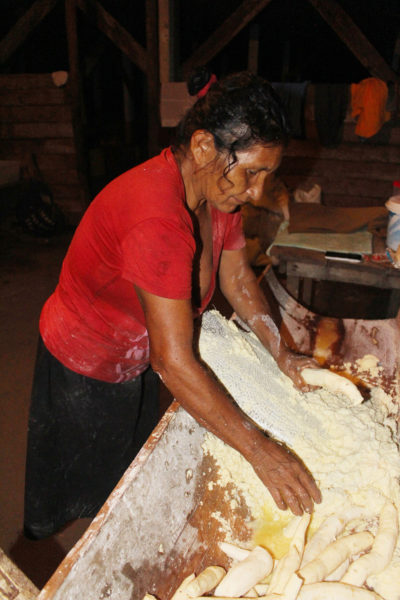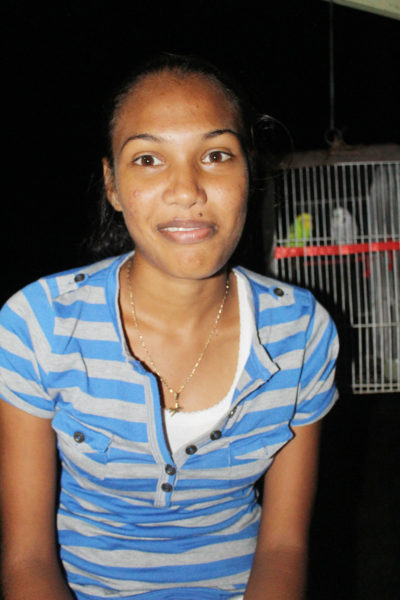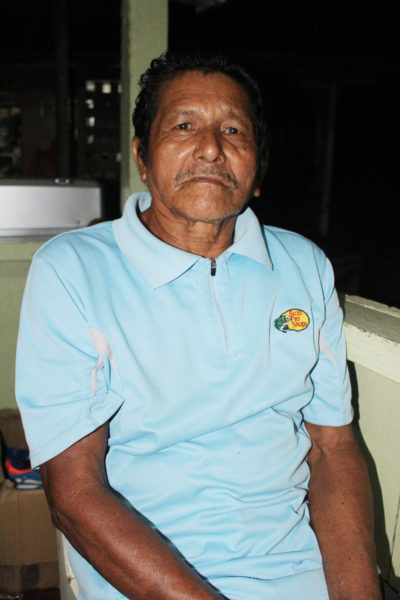Living in Whitewater Central, Toshao Cleveland DeSouza said, has become much easier compared to a number of years ago when they had to foot it to Kumaka Market whenever they missed the tractor, as transportation is much more readily available.
And with the Whitewater nursery and primary schools having been built, there is better access to education for the younger children. However, DeSouza wishes that the Whitewater schools could be made independent of the Wauna schools since at present they are annexes.
“Some disadvantages are water and electricity,” he said. “The people here have to use generators or solar panels. We get water here two to three times a week for a duration of one and a half hours. This is just for Central. Other areas have no [potable] water. In Central, people use rain water to drink and still we use the creek for washing and bathing.
“Things in the shops are expensive here.
“We need proper roads. We need electricity, internet service, 24/7 [potable] water and a guest house to put our tourists when they come, instead of them staying all the way in Mabaruma. We also need a better vessel for passengers and cargo. The Kimbia is still under repair which is another cause for expensive goods.”
And as regards cellular service, he said, “We have better signal with Digicel. We really don’t get any signal when it comes to GTT. We used to have to travel to Mabaruma [an hour’s drive or four hours’ walk away] to use the landline at a shop there. They charged $100 a minute.”
Carlton Charles better known as Brother Carlton was born and raised in Assakata, a village in Region One situated 13 miles from Moruca. For seven years after leaving Assakata, he lived in Waini before settling in Whitewater 34 years ago.
“My wife had some relatives this side. She come to see she family and me follow after and we settle here after we apply for we house lot,” Charles said.
“It hadn’t much people and no kinda zinc house; pure troolie house. At the time I come here, transportation was very hard. We had one tractor and that was co-op tractor. When we didn’t get the tractor we had to paddle to Mabaruma for like five hours. Paddling take longer than the walking. Sometimes we had to walk it, which was four hours.
“We get ration and food stuff right around here. Is only now like [the village] get easy to live but first time was hard.
“I farm sweet cassava, bitter cassava and plantain. My farm till at Blackwater. The only problem is people thiefing [the produce] sometimes.”
According to Charles, life is now more comfortable. However, compared to Assakata, he said, it is not as “cooperative” and he wishes for its people to unite more. His view is not shared by all. Sharda Dhanraj, a teacher at Whitewater Nursery, only moved to the village a little over two years ago, from Fifty Acres in Wauna Village. Dhanraj is the chairperson for the sports and culture group and a member of the Women’s Cricket Team and Volleyball Team.
She attended Wauna Nursery and Primary and went on to attend North West Secondary some six villages away from Whitewater. Though she lived most of her life in Wauna, she said, she never mixed with the people there. It wasn’t until she moved to Whitewater that she started socializing. “Through sports and work I mixed with the people here. I find the people of Whitewater to be very friendly and cooperative,” she said.
Speaking on behalf of the youths of Whitewater she said, “Some disadvantages here are not having internet service, not getting the local television channels, so no news unless you listen to the radio,” she said.
Most of the people she said, work in the gold mines. The remaining few are teachers, farmers, shopkeepers and drivers. She wishes that school dropouts can have a place of their own where they can learn more vocational skills apart from craft-making.
Warraus, who live in satellite communities, travel to Whitewater to trade. They can usually be seen in groups of ten or more—entire families, with babies protected from the heat by palm branches—arriving with quakes of crabs slung from the men’s backs and bags of fish in their hands. In the late afternoon on their way home, their quakes are filled ration. Any word or greeting rendered to them in English mostly goes unanswered. English is foreign to the majority of them, as they only speak Warrau.
But not so with the people living in Central, if you pass 20 villagers on the road, you will hear and respond to 20 greetings of good morning, good afternoon or good night, which they call out long before they even reach you. The friendliness and good manners of the people of Whitewater is as fresh as the air there and free from contamination.
The sun though, seemed hotter there, burning from above and the sand beneath. The night, however, is the total opposite. It is so cold that a blanket is a must have item.
Villagers boasted that Whitewater’s tourist attractions include a 550 ft catwalk bridge, Bamboo Avenue and their beloved and much talked of Arucuru Bridge, famous for picnicking and indulging in the sparkling, cold, black water running beneath it. However, none of these areas were accessible during our visit.
